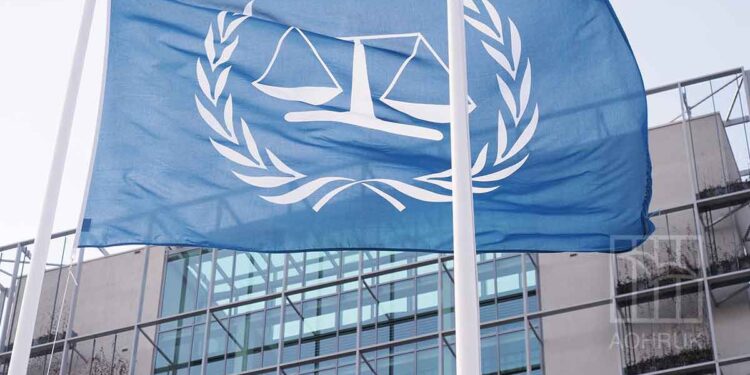Arab Organisation for Human Rights in the UK (AOHRUK) has submitted a communication to the Office of the Prosecutor at the International Criminal Court (ICC), calling for the urgent opening of an investigation into serious crimes allegedly committed by officials of the “Gaza Humanitarian” Foundation and private security companies contracted by it, during the period from 27 May to the present date.
AOHR UK stated that the crimes in question fall squarely within the jurisdiction of the ICC and include the most serious crimes outlined in the Rome Statute: war crimes, crimes against humanity, and participation in the crime of genocide.
AOHR UK added The complaint is accompanied by evidence, maps, and satellite imagery showing that the foundation’s aid distribution centres were established with the purpose of killing, starving, and displacing civilians — not for genuine humanitarian relief.
Aerial images reveal that these centres were designed like military bases, with narrow, one-way entrances stretching for kilometres, leading to bottleneck zones. As civilians advanced through these corridors, live fire was opened on them, and in some cases, tank shells were fired directly into the crowds.
AOHR UK noted that killings continue to escalate inside and around the aid distribution centres, these incidents are documented by field testimonies, UN reports, and credible media sources, confirming that the centres have been transformed into death traps operated under military agendas, used as a cover for the systematic starvation campaign being waged against the civilian population of Gaza.
The foundation played a key role in bolstering the occupation’s stance of obstructing UN humanitarian aid and aid from its implementing partners, leading to the death of numerous civilians — including children — due to lack of food and medicine, with hunger now threatening the lives of tens of thousands.
Despite the gravity of these crimes, no serious statement has been issued by the foundation or security officials acknowledging legal responsibility or clarifying their position. All that has been released are cowardly, hollow statements devoid of moral integrity, with some bordering on justifying the crimes or downplaying their severity. In some instances, the foundation merely expressed “regret” over civilian casualties without accepting responsibility or committing to accountability.
AOHR UK pointed out that the foundation’s officials appear to believe they are shielded from any legal accountability, due to political cover believed to be provided by the United States government. Moreover, one senior official at the foundation reportedly maintains close ties with a regional state that has strategic relations with the Israeli occupation, and is suspected of being directly or indirectly complicit in supporting these crimes, whether through facilitation or turning a blind eye to the ongoing violations.
In this context, AOHR UK renewed its call for the United Kingdom and the European Union to impose immediate sanctions on the foundation’s officials as well the security contractors under the Global Human Rights Sanctions Regime (Magnitsky Act). It also urged the international community — including lawyers, legislators, and human rights advocates — to intensify efforts to pursue and prosecute those responsible under all available jurisdictions.
AIHR UK stressed that the world, including some of the occupation’s traditional allies, is now rising in protest against the atrocities and the collective starvation policy. In stark contrast, Arab and Islamic regimes remain mired in silence and complicity, with some governments responding to pro-Gaza demonstrations by cracking down on peaceful protests, arbitrarily arresting activists, and carrying out summary trials, revealing a profound disconnect between these regimes and their people.
AIHR UK called on the peoples of the Arab and Islamic worlds to follow the example of free nations worldwide, by taking to the streets in mass protests rejecting complicity and starvation, and demanding concrete action to immediately deliver humanitarian aid.
It also underscored the urgent need to turn the city of Rafah into an international launching point for breaking the blockade on Gaza and delivering aid under the auspices of the United Nations, in defiance of the occupation’s will and with the participation of the international community and independent humanitarian organisations.


























